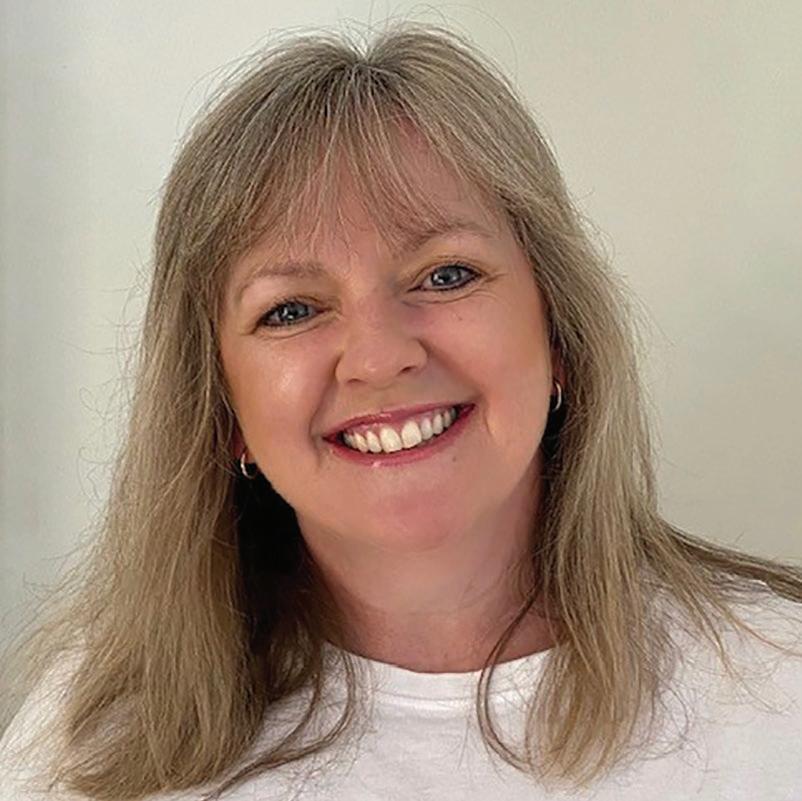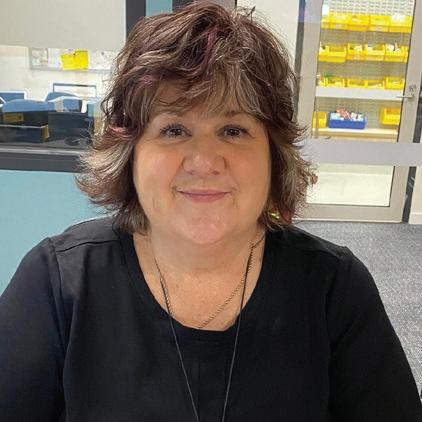
4 minute read
Frankston colleagues
As part of formation, each year SJGHC managers must partake in activities that are purposeful, reflective and ongoing in the lives of participants. This year, managers have been offered the opportunity to undertake The Immersion Experience as part of their formation requirements. This key initiative allows managers to experience other parts of either the hospital they work at or at another SEM hospital altogether. By observing how other teams and caregivers interact and by learning about the different roles that exist, managers can actively improve workplace morale through the insight and appreciation they gain for their colleagues and the individual contribution that caregivers make to the successful running of our hospitals.
Choosing to take part in the immersion experience as part of her formation obligations, Tori McCarthy, NUM of Berwick’s surgical unit made her way over to Frankston Hospital to walk in the footsteps of her fellow caregivers. Working across the executive office, Granada ward, palliative care, administration and allied health care, Tori was able to achieve a better understanding of how a rehabilitation facility operates and how other hospitals work to uphold SJGHC’s mission and values. In her own words, Tori shares her experience below…
On December 12 last year, I headed over to Frankston Rehabilitation Hospital to participate in the formation activity: ‘Department Immersion Experience’. I chose Frankston as I haven’t had any experience in rehab and was hoping to gain further knowledge. I had heard that it was a 60-bed hospital, which is dramatically different to Berwick and was looking forward to experiencing the differences and similarities of both sites.
I had a great day and gained insight into how other departments run and how other caregivers work. Everyone was exceptionally welcoming and friendly.
To start off the day I met with Karen Ward, Director Clinical Services. I spent half an hour or so discussing the hospital and what her day looked like. I was taken on a tour of the hospital and from there I headed to the multidisciplinary bed meeting, working with the RAN (rehabilitation assessor nurse), allied health care (AHC), NUMs, OT, physio and pastoral care. Here the hospital inpatients were discussed, involving OT and physio to ensure discharge planning was achieved. They also discussed bed availability and discharges, and any patients they were concerned about. I felt that this team worked really well together, showing excellence in all of their individual fields, and everyone respected each other and appreciated their knowledge and input.
After the meeting I headed to work alongside the palliative care ANUM on Granada ward for a couple of hours. This was great. Having not worked in palliative care before I found this extremely interesting and rewarding. There were four palliative care patients, two of those were approaching end-of-life. I helped out at the bedside with a couple of patients, listened to their needs and assisted with their general care. I observed palliative care nurses interact with these end-of-life patients. They show so much compassion and respect. Always going above and beyond and making the patients feel as comfortable as possible. The patients themselves were extremely grateful. The whole encounter for myself was very rewarding.
I joined in on the palliative care team meeting, where all four patients were discussed with the palliative care doctor, NUM, allied health rep and pastoral care. This was done very professionally with the patient’s best outcome being the optimum result for everyone involved. Justice was shown I feel in this respect. All caregivers had the patient’s best interests at heart.
I then spent a bit of time with the NUM of Granada, and then attended a doctor case conference. This was interesting. I learnt about what health fund expectations were of rehab, and how the multidisciplinary teams work together to meet these expectations. Everyone involved in this meeting was quite respectful, and I appreciated them letting me be involved and participating. It was great to see all aspects of the health profession working together to get the best outcomes for the patient, trying to get them independent enough to get home. Especially with Christmas not far away.
Next I decided to work alongside administration staff. This was great as I have never had any insight into their jobs. I did some work in the background helping with upcoming admissions. Then I spent some time on front reception. It was great working alongside Kathleen. We greeted everyone who entered the hospital and worked on the admissions for the day, doing fund checks and data entry. We also managed the outpatient lists for the day. I enjoyed this as everything was completely new. The team in the admin office seemed to work well and cohesively together. Kathleen on front reception was very kind, friendly and respectful to all who entered the hospital and those who called, showing a great deal of hospitality in the process.
She was particularly great at continuing to get a lot of work done on the computer for upcoming admissions at the same time.
Lastly I spent an hour working alongside the RAN/AHC. Sharon was great. She manages the bed access and the nurses on the road. She was looking at referrals coming in and where they can be admitted. She liaises with the ward, checking on whether they are able to take on the patients depending on staffing. Sharon shows excellence in her role, being able to assess the patients and decide their eligibility for rehab from all external hospitals. She also shows gratitude and empathy to the wards and their staff regularly. Her communication skills are exceptional.

Overall I really enjoyed my experience at SJGFRH. It was great to see how another hospital runs, even if it was only a few departments within the facility. I spent six hours at Frankston across exec office, AHC, bed meetings, Granada ward, palliative care and in admin. I felt that the values of SJGHC and the mission were clearly on display in each of the departments I worked in.









